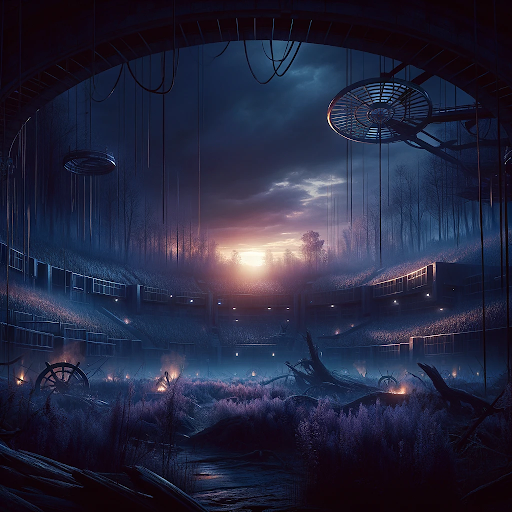A Deep Dive into The Hunger Games
Updated: 17 November 23
29
Introduction
In an era where dystopian tales often mirror the anxieties of our reality, Suzanne Collins’s “The Hunger Games” series emerges as a chilling yet enthralling depiction of power, survival, and resistance. This review aims to dissect the layers of Panem’s society and the poignant journey of its characters, particularly the formidable Katniss Everdeen.

Author’s Background
Suzanne Collins, acclaimed for her potent storytelling, brought forward a series that has since become a cultural touchstone. Her background in television writing has sharpened her cliffhanger skills, evident in the trilogy’s pace and structure, while her exploration of war and its effects on humanity adds a layer of depth to her novels.

Main Content of the Review:
Summary
The series chronicles the harrowing exploits of Katniss Everdeen as she participates in the Hunger Games, a televised event where children fight to the death. It’s a stark examination of societal disparities, authoritarian rule, and the human spirit’s tenacity.

Critical Analysis
Collins deftly crafts a universe that’s both foreign and familiar, with the opulence of the Capitol starkly contrasted against the squalor of the districts. While the series has been celebrated for its compelling protagonist and rich thematic content, it does not shy away from graphic depictions of violence, which can be unsettling for some readers.
Personal Reflection
Having journeyed with Katniss through her trials and triumphs, the series serves as a profound commentary on the nature of spectacle, power, and rebellion. It encourages readers to reflect on our society’s direction and the role of youth in shaping the future.
Recommendation
“The Hunger Games” series is essential reading for young adults and older readers alike, engaging with its action-packed narrative and resonating through its exploration of deeper societal issues.

Conclusion
Suzanne Collins’ “The Hunger Games” series is more than a tale of survival; it’s a catalyst for discourse on authority, morality, and resistance. Its legacy is as enduring as the spirit of its heroine.
Author Bio of the Reviewer
As an avid enthusiast of dystopian narratives and a professional book critic, I bring a deep-seated passion for analyzing literature that pushes boundaries and incites discussion. With a history of dissecting young adult series and their sociocultural impacts, I offer a review that’s as informed as it is impassioned.
Please Write Your Comments